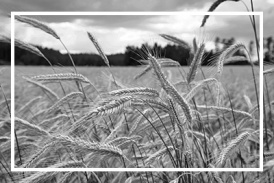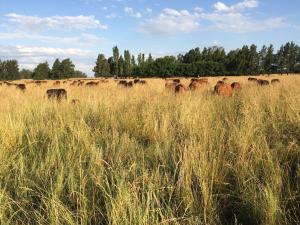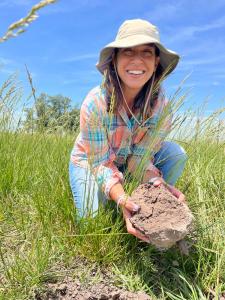Boomitra Achieves Verra Registration for South America Grassland Restoration Project, Expanding Global Carbon Portfolio
With this latest milestone, Boomitra now has registered soil carbon projects across four continents, demonstrating leadership in global carbon removal efforts.
The South America Grassland Restoration Project encompasses 76,355 acres of critical grassland ecosystems across Argentina and Paraguay for its first monitoring period, engaging 21 ranchers to implement regenerative grazing practices. Since 2021, the project has already sequestered more than 100,000 tonnes of CO₂, with an estimated annual removal of 38,159 tonnes and a projected total of over 763,000 tonnes over its 20-year crediting period. Boomitra has already onboarded several thousand additional acres, with the total project area expected to expand to more than 500,000 acres over the next three years—making it one of the largest soil carbon initiatives in South America.
“This project further highlights our ability to scale high-integrity carbon removal globally, leveraging AI and remote sensing to accurately measure soil carbon at unprecedented scales,” said Aadith Moorthy, founder and CEO of Boomitra. “With registered projects now spanning four continents, we’re proving that regenerative practices supported by cutting-edge technology can deliver meaningful climate action and economic benefits to farmers and ranchers across diverse landscapes.”
Empowering Local Communities with Regenerative Practices
Boomitra’s project in Argentina and Paraguay supports ranchers in adopting regenerative grazing practices that enhance soil health, increase biodiversity, and improve overall land productivity. Situated across the iconic Pampas ecosystem—one of the world’s largest temperate grassland regions—the project spans the Humid Pampas, Semiarid Pampas, and parts of the Chaco ecosystem. These regions have faced mounting threats from land-use change, unmanaged grazing, and abandonment, contributing to significant declines in soil organic carbon levels.
To reverse these trends, Boomitra works with ranchers to implement a range of regenerative practices including rotational grazing, improved forage management, native species regeneration, construction of microbasins and water ponds, and carefully managed burning. These interventions help restore ecological balance, increase water retention, and ensure sustainable livestock production.
Working with two on-the-ground implementation partners, Aves Argentinas, a leading Argentine conservation NGO, and Guyra Paraguay, a science-based NGO focused on conservation and sustainable land use in Paraguay, Boomitra ensures extensive local engagement, capacity building, and support for the ranchers to sustainably manage their lands while earning income from carbon credits.
Cross-Continental Leadership in Soil Carbon
This latest registration builds on Boomitra’s successful and expanding portfolio, which now includes Verra-registered grassland and cropland projects in Kenya, Mexico, and South America. It also includes the URVARA project in India—a croplands initiative registered and currently issuing credits under the Social Carbon standard. Together, these projects span four continents and demonstrate Boomitra’s commitment to scaling high-integrity carbon removals in diverse agricultural landscapes.
Boomitra’s groundbreaking AI-driven monitoring system, validated by both Verra and the Social Carbon standard, delivers precise carbon quantification through satellite imagery and machine learning. This innovation significantly lowers the cost of monitoring and enables a greater share of carbon revenue to flow directly to farmers and ranchers.
Boomitra’s integrated, cross-ecosystem approach has demonstrated unprecedented scalability and adaptability, reinforcing the critical role soil plays as a cost-effective and rapid climate solution. By quantifying and monetizing soil carbon improvements, Boomitra directly supports land stewards around the world, driving both ecological and economic resilience.
About Boomitra
Boomitra is the leading international soil carbon project developer powered by AI and remote sensing technology. Alongside an ecosystem of international partners, Boomitra equips every farmer and rancher to increase their soil carbon and yields, while securing additional income through carbon credits. A 2023 Earthshot Prize Winner, Boomitra’s projects benefit over 100,000 farmers on four continents, covering 5 million acres. With 100 global partners, Boomitra has removed 10 million tonnes of CO2 from the atmosphere. For more information visit boomitra.com.
Shelley Northrop
Boomitra
shelley@boomitra.com
Visit us on social media:
LinkedIn
Instagram
Facebook
X
Legal Disclaimer:
EIN Presswire provides this news content "as is" without warranty of any kind. We do not accept any responsibility or liability for the accuracy, content, images, videos, licenses, completeness, legality, or reliability of the information contained in this article. If you have any complaints or copyright issues related to this article, kindly contact the author above.
Bounce Online Solidifies Position as One of South Africa's Leading Online DJ Equipment Retailers
One Click SEO Unveils One Click GEO & Aura: Pioneering Brand Visibility in the AI-First Search Economy
Arun Kumar Palathumpattu Thankappan Leads Public Sector Innovation with Amorphic by Cloudwick
Więcej ważnych informacji
 Jedynka Newserii
Jedynka Newserii

 Jedynka Newserii
Jedynka Newserii

Handel

Mercosur to tylko wierzchołek góry lodowej. UE ma ponad 40 umów handlowych, które mogą destabilizować rynek rolny
Umowa handlowa między UE a krajami Mercosur może znacząco zaburzyć konkurencję na rynku rolnym i osłabić pozycję unijnych, w tym polskich, producentów – ostrzegają rolnicy i producenci żywności. Umowie sprzeciwia się część krajów unijnych, które domagają się klauzuli ochronnych oraz limitów importowych. – Problemem jest jednak nie tylko ta konkretna umowa. Chodzi o cały system wolnego handlu, który się kumuluje z dziesiątek innych porozumień – podkreśla Andrzej Gantner, wiceprezes Polskiej Federacji Producentów Żywności.
Firma
Dzięki zdalnej weryfikacji tożsamości z wykorzystaniem AI firmy zminimalizowały liczbę oszustw. Rozwiązania wykorzystuje głównie sektor finansowy

Z najnowszych danych Eurostatu wynika, że w 2024 roku 5,9 proc. polskich firm korzystało z rozwiązań z zakresu sztucznej inteligencji. W 2023 roku był to odsetek na poziomie 3,67 proc. Wciąż jednak jest to wynik poniżej średniej unijnej, która wyniosła 13,48 proc. Jednym z obszarów, który cieszy się coraz większym zainteresowaniem wśród przedsiębiorców, jest weryfikacja tożsamości przez AI, zwłaszcza w takich branżach jak bankowość, ubezpieczenia czy turystyka. Jej zastosowanie ma na celu głównie przeciwdziałać oszustwom i spełniać wymogi regulacyjne.
Prawo
Daniel Obajtek: Własne wydobycie i operacyjne magazyny to filary bezpieczeństwa. Zgoda na magazyny gazu poza krajem to rezygnacja z suwerenności energetycznej

Były prezes Orlenu ostrzega przed zmianami w ustawie o zapasach ropy naftowej, produktów naftowych i gazu ziemnego. Jego zdaniem przygotowana przez rząd nowelizacja tzw. ustawy magazynowej i ujednolicanie unijnej polityki energetycznej to zagrożenie dla bezpieczeństwa energetycznego Polski. W jego opinii tylko silna spółka narodowa, własne wydobycie, krajowe magazyny i zbilansowany miks energetyczny zapewnią Polsce bezpieczeństwo i konkurencyjność.
Partner serwisu
Szkolenia

Akademia Newserii
Akademia Newserii to projekt, w ramach którego najlepsi polscy dziennikarze biznesowi, giełdowi oraz lifestylowi, a także szkoleniowcy z wieloletnim doświadczeniem dzielą się swoją wiedzą nt. pracy z mediami.







![Nestlé w Polsce podsumowuje wpływ na krajową gospodarkę. Firma wygenerowała 0,6 proc. polskiego PKB [DEPESZA]](https://www.newseria.pl/files/1097841585/fabryka-nesquik_1,w_85,r_png,_small.png)



.gif)

 |
| |
| |
|